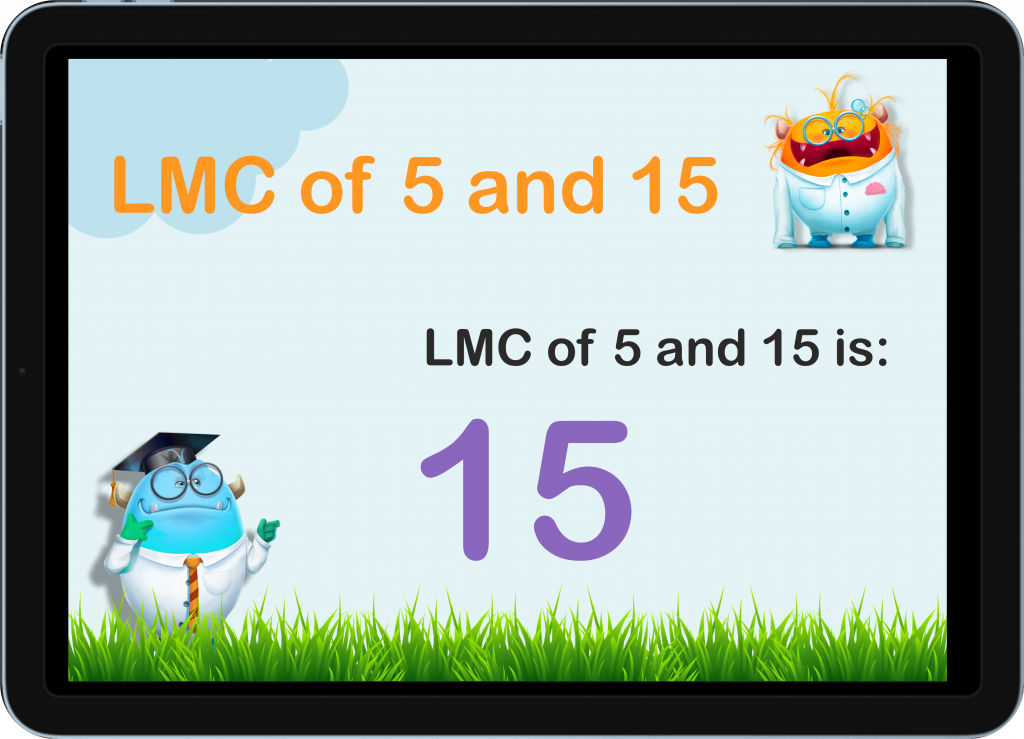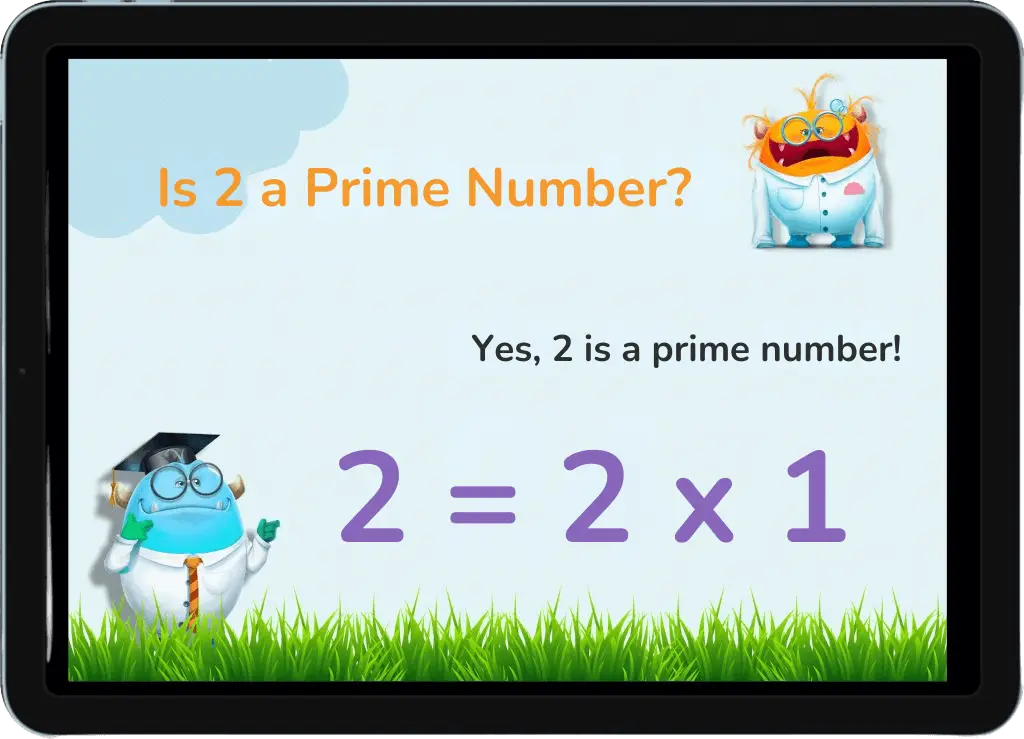Is 2 A Prime Number?
Prime vs. Composite Numbers
Greetings, young math enthusiasts! Today, let’s set sail on a mathematical voyage to determine if 2 is a prime number, and learn more about the difference between prime and composite numbers.

Is 2 A Prime Number?
Or Is 2 a Composite Number?
Greetings, young math enthusiasts! Today, let’s set sail on a mathematical voyage to determine if 2 is a prime number, and learn more about the difference between prime and composite numbers.


No credit card required

No credit card required
Is 2 a Prime Number?
How is 2 a Prime Number?
Is 2 a Composite Number?
Problem Statements
Fun Facts
Is 2 a Prime Number?
Is 2 a prime number? Yes, 2 is a prime number! Understanding why 2 is prime is like unlocking a mathematical treasure chest, simplifying complex concepts and making number theory a breeze.
- Is 2 a prime number? – Yes
- Is 2 a composite number? – No
- Prime Factors of 2 – 2
- Factors of 2 – 1, 2
- Is 2 a perfect square? – No
Join us as we explore the captivating reasons that make 2 a prime number and delve into the enchanting world of prime and composite numbers!
How is 2 a Prime Number?
Visualize numbers as detectives, each with their unique case files. Let’s dissect the case of 2 and uncover why it’s a prime agent:
2 = 2 x 1
Here’s the breakdown:
- 2 can only be divided evenly by 2 and 1.
- No other numbers can fit perfectly into 2 without causing a disturbance.
Thus, the detective case is solved: 2 is a prime number because it stands alone with only 2 and 1 as its perfect divisors. Case closed!
Is 2 a Composite Number?
No, 2 is not a composite number.
Here’s why:
A composite number must have more than two divisors, meaning it can be divided evenly by numbers other than just 1 and itself.
However, 2 can only be divided evenly by 1 and 2, leaving no room for additional divisors to fit in without causing a disturbance. Thus, the detective case confirms: 2 remains solely a prime number, not a composite. Case closed!
Prime vs. Composite Numbers
What’s the difference between prim and composite numbers? Here’s a quick breakdown:
Prime numbers are like the solo stars of the number world. They can only be divided evenly by 1 and themselves.
Composite numbers are the social butterflies of the numerical world. They can be divided evenly by numbers other than just 1 and themselves.
Make sure to remember this and apply it to other numbers moving forward. Are you ready? Let the mathematical journey begin!
Multiply those friendly divisors: LCM (5, 15) = 5 x 3 = 15
Problem Statements
| Questions | Answers |
|---|---|
| Is 2 a Prime Number? | Yes |
| Is 2 a Composite Number? | No |
Fun Facts
1. The Only Even Prime Number
Fun Fact: The number 2 is the only even prime number.
Why: Every other even number can be divided by 2, making them composite. But 2 can only be divided by 1 and itself, making it the unique even prime.
2. Twin Primes
Fun Fact: Twin primes are pairs of prime numbers that are only two numbers apart, like 11 and 13 or 17 and 19.
Why: These pairs are special because, despite being so close together, both numbers in the pair are prime. Mathematicians are still exploring whether there are infinitely many twin primes!
3. Prime Number Gaps
Fun Fact: As numbers get larger, the gaps between prime numbers can vary widely, but there is always at least one prime number between n and 2n.
Why: This is known as Bertrand’s Postulate (or the Bertrand-Chebyshev Theorem), and it guarantees that primes don’t get too scarce as we move up the number line.
Congratulations, intrepid mathematicians! Navigating the numeric pathways to uncover if 2 is a prime number! Keep exploring, keep smiling, and revel in the enchanting world of math!
Learn More About Prime Numbers
© 2024 Smartick. All Rights Reserved.
